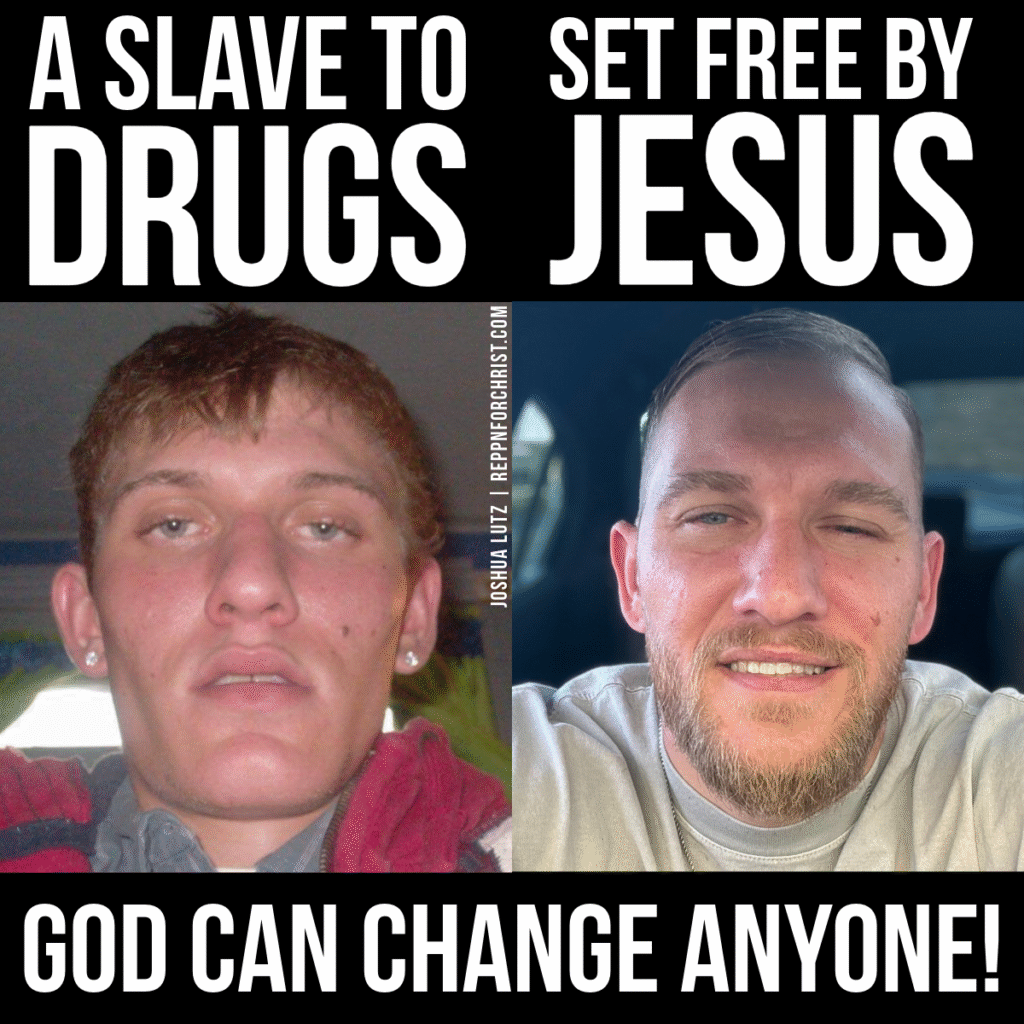
Chains to Change: My Story - Joshua Lutz
I lost my brother when I was just 4 years old. That kind of loss hits deep — even when you’re too young to understand it fully, it leaves a mark on your heart.
At age 11, I was diagnosed with Type 1 diabetes. It was the last day of school, a yard day. I remember the moment like it was yesterday. While the other kids were outside playing, my dad came into my class and explained to them what was going on. That same day, I gave myself my first insulin shot — and my dad gave me his number 16 chain. That chain became my sports number growing up and something I carried with pride.
But even with moments of strength, life was a battle. I ended up down a dark road — addiction, pain, brokenness. I was incarcerated. My name was replaced with a number: 589980. I was reduced to a label, but that wasn’t the end of my story.
The real turning point didn’t come while I was locked up — it came about a year after I got out. A man named Mike Powers gave me a job at his golf course. I was making just $8 an hour, but I was grateful. After everything I had been through, someone gave me a shot.
About a year into that job, Mike invited me to church. I didn’t grow up in church. I hadn’t even heard the name of Jesus until I was 27 years old.
But that Sunday, something powerful happened. The Bible says no one comes to the Father unless the Spirit draws them — and that day, I was drawn in. The people didn’t just talk about Jesus. They lived it. They met me right where I was: angry, addicted, ashamed, lost.
And when I heard the gospel for the first time, Jesus made Himself real to me. He didn’t wait for me to clean up my life — He stepped into the middle of my mess and started changing me from the inside out.
Now I’m walking in freedom.
I’m a business owner, a homeowner, and most importantly, a father. I design T-shirts with messages that speak to the broken because I’ve been there.
Messages like:
“You were made on purpose for a purpose.”
“You are never too far gone for God’s love.”
Because I know what it’s like to feel too far gone.
But I also know the power of redemption.
This isn’t a highlight reel — it’s a story of grace.
From chains to change, this is my story.
And if He can do it for me,
He can do it for you too.
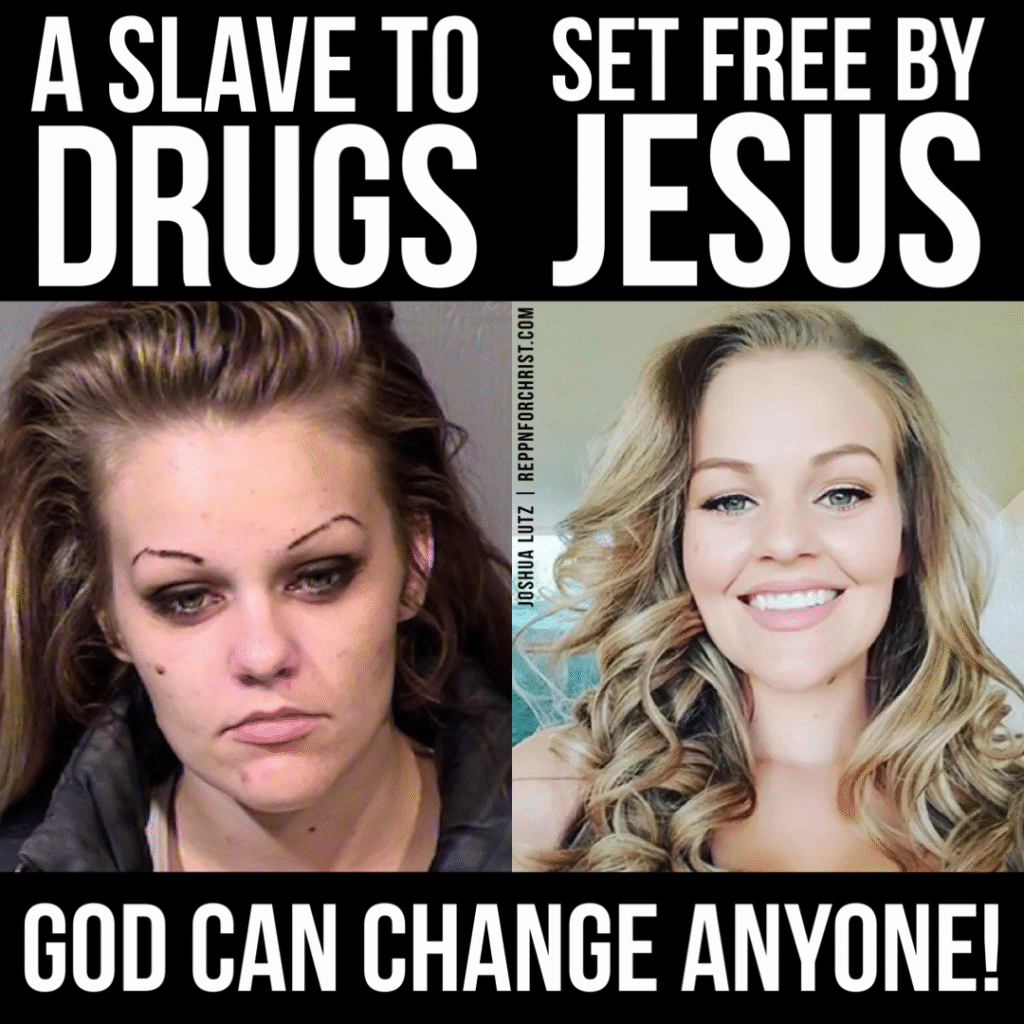
Dejah Hall: When Rock Bottom Spoke
By her early twenties, Dejah was caught in a battle with addiction — meth, heroin, cocaine. Her life was spiraling, and she knew she was losing herself.
One day, during a visit with her grandfather, she heard words that hit her to the core: “You’re hurting me, Dejah.” That moment sparked something deep inside — a promise to change.
Not long after, she was arrested and faced prison. It could have been the end, but it became her beginning.
With faith and determination, Dejah fought her way to sobriety.
Today, she’s four years clean. She’s a mother, a student pursuing her degree, and soon, a counselor ready to help others walk out of addiction’s darkness.
Her story shows that no matter how far you’ve fallen, chains can break — and a new life can begin.
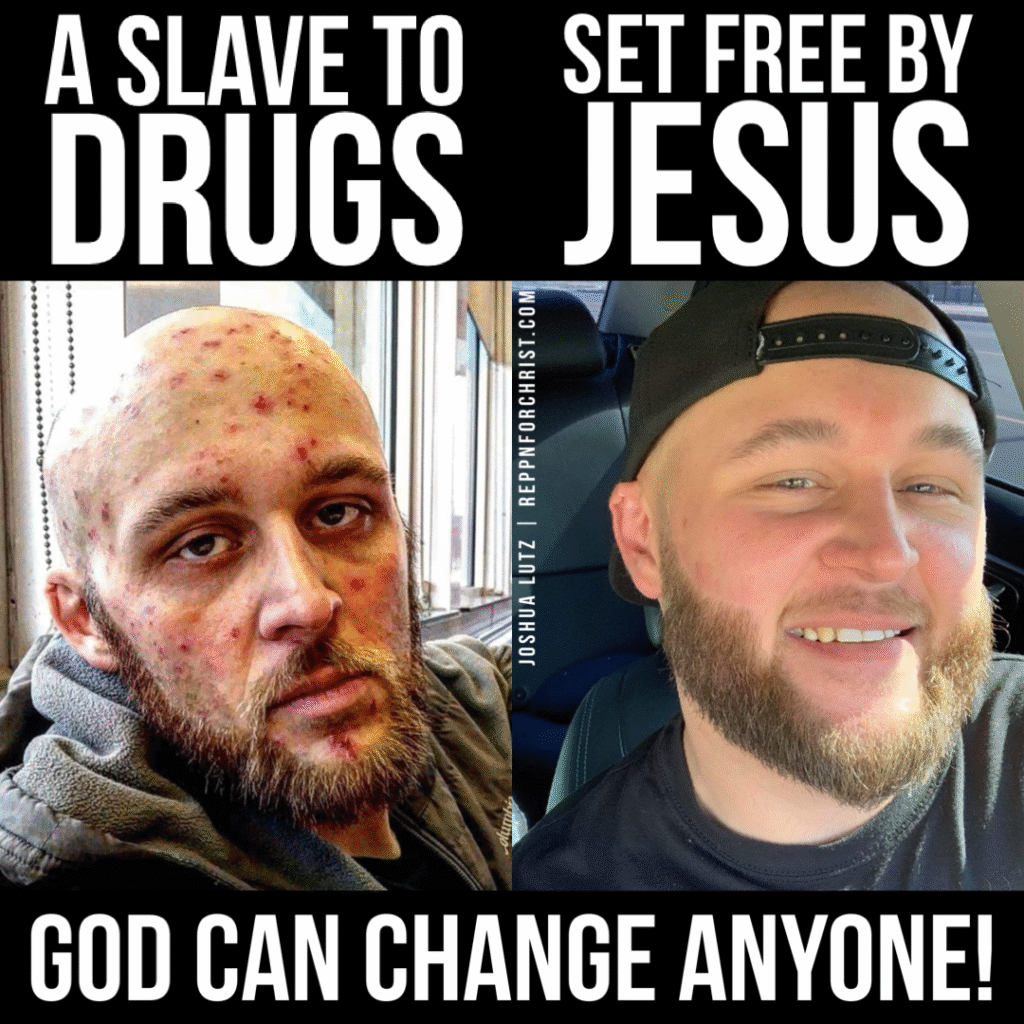
Hunter Sheppard: Rock Bottom Had Six Basements
Some addicts hide it well. Then there are the ones who lose everything — reputation, family, even a place to sleep.
Hunter Sheppard was the second kind.
For over a decade, he was in free fall — consumed by addiction and mental illness so deep, even drug houses didn’t want him around. The cheapest motels in town wouldn’t rent to him. Friends cut him off. Family gave up.
But Hunter? He didn’t really care. Because the drugs always came first.
He’d clean up for a while. A few “maybe he’s back” moments. But every time, relapse was waiting — and with each one, it got darker.
“Rock bottom had six basements,” he says. And somehow, he hit them all.
But the scariest part wasn’t the chaos. It was how comfortable it became. He got used to being numb. He made peace with the pain.
There wasn’t some big intervention. No dramatic rescue.
What saved Hunter was desperation.
One day, the only option left was sobriety — not because it sounded good, but because it was the only way not to die.
From that moment, everything shifted.
It wasn’t quick. It wasn’t pretty. But it was real.
Through pain and persistence, he fought his way into recovery. And in that fight, he found something stronger than addiction: purpose.
Today, Hunter doesn’t just stay sober — he helps others do the same.
He works with families to place their loved ones in treatment. He provides sober transportation for people running from the same darkness he once knew. And his mission reaches all the way to forgotten communities in Bulgaria — because nobody is too far gone.
Hunter doesn’t wear a cape. He just shows up. Because someone once saw worth in him — and now, he sees it in everyone.
There’s no such thing as “too far gone.”
Hunter Sheppard is living proof.
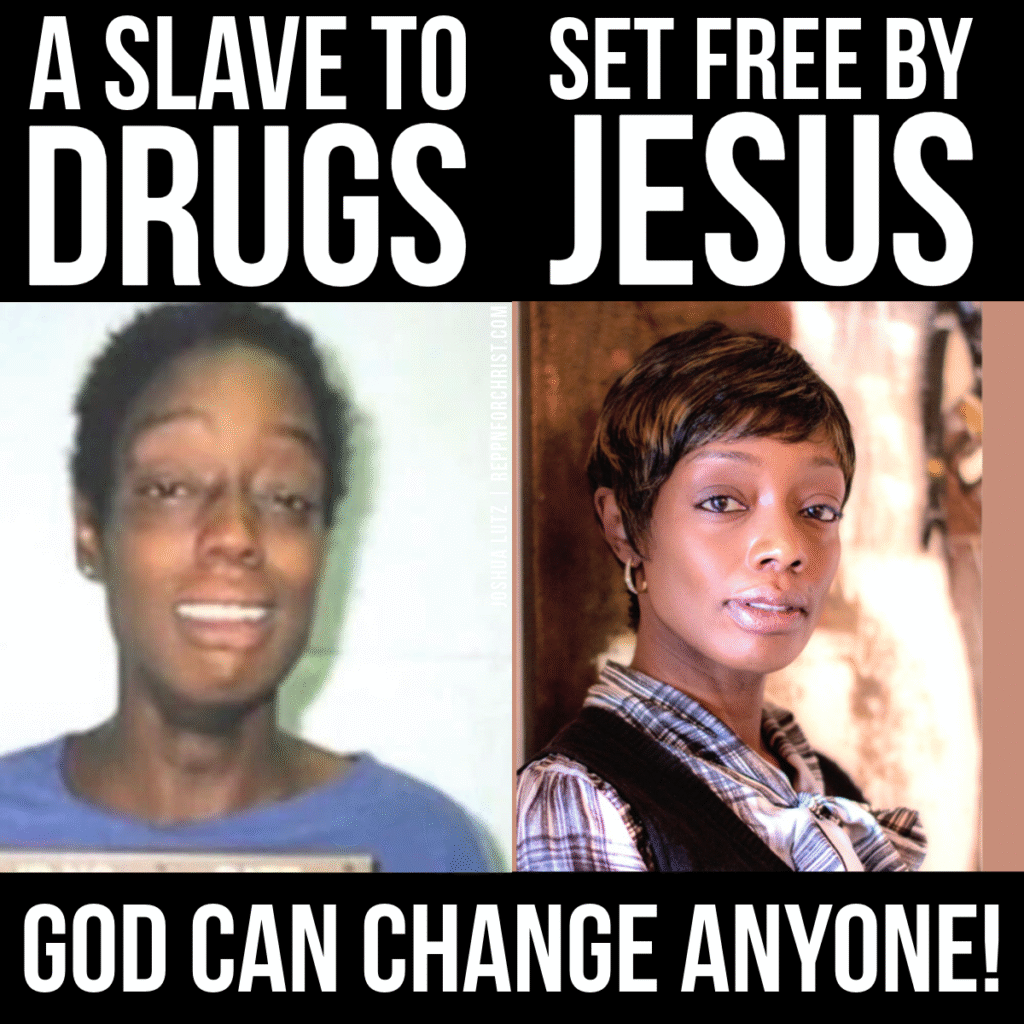
Tonier Cain: Where There’s Breath, There’s Hope
Tonier “Neen” Cain spent nearly two decades living in addiction, homelessness, and trauma. Arrested over 80 times and cycling through the criminal justice system, she lost everything — including custody of her children.
Raised in a home marked by abuse and neglect, Tonier endured unimaginable pain from a young age. By her twenties, she was living on the streets, deep in addiction, and caught in a system that punished symptoms but never addressed the source: trauma.
But everything changed in 2004 when, pregnant and incarcerated again, she hit her breaking point. On the concrete floor of her jail cell, she whispered a prayer:
“God, I don’t know if You hear people like me, but if You do, please help me.”
That prayer marked the beginning of healing.
Tonier was placed in a trauma-informed care program called Tamar’s Children, where she began confronting the deep wounds behind her addiction. For the first time, someone looked beyond her record and saw a person worth saving.
Today, Tonier is a globally recognized advocate for trauma-informed care. She’s the author of Healing Neen, the subject of a powerful documentary by the same name, and has spoken in more than 60 countries to professionals, lawmakers, and communities. Through her organization Neen Cares, she continues to serve women and families impacted by trauma.
Tonier’s story isn’t just about survival — it’s about redemption, purpose, and the power of faith.
To learn more about Tonier Cain or bring her to speak, visit toniercain.com.
Her story is proof: where there’s breath, there’s hope.
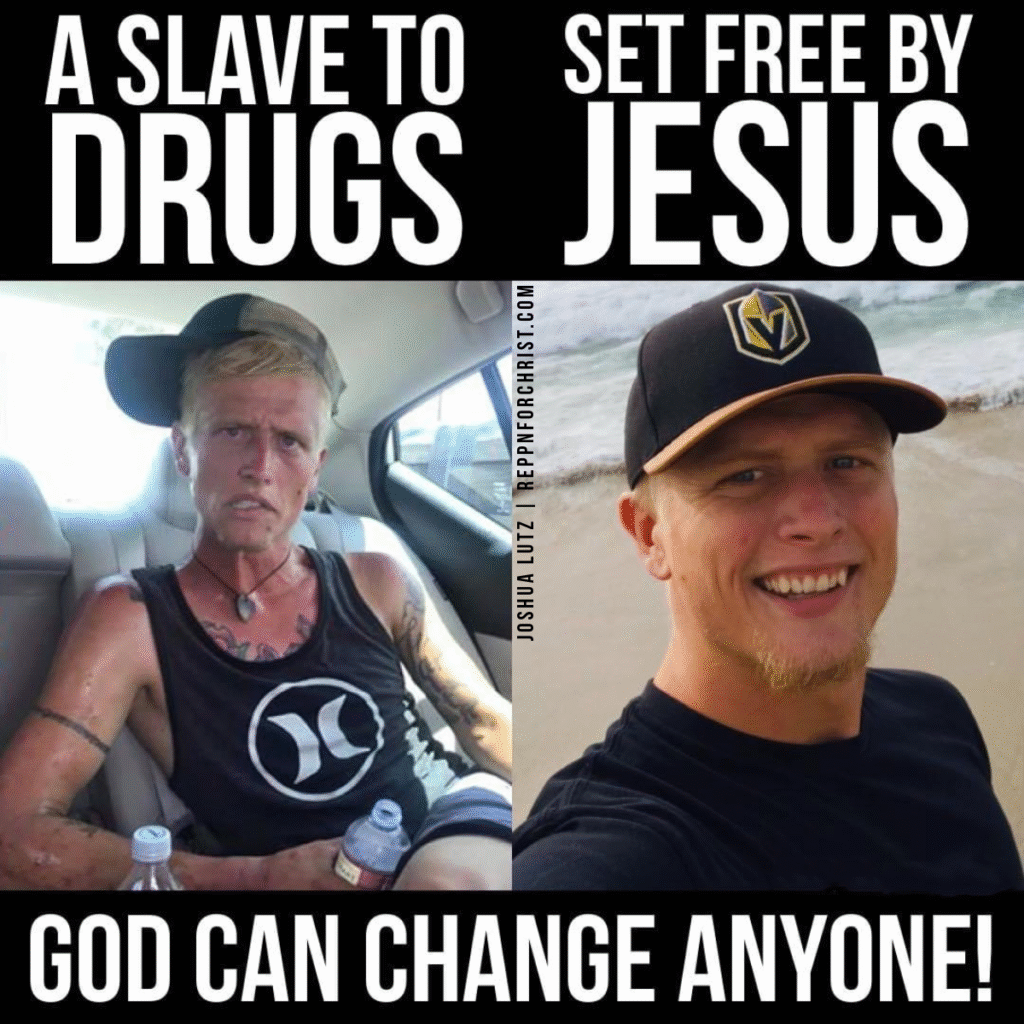
Cody Bishop: From Bodybuilder to the Face of Recovery
Cody Bishop was once a standout athlete — a bodybuilder, high school graduate, and proud son from Wentzville, Missouri. But by his early twenties, addiction took hold. What started with prescription pills quickly spiraled into heroin and meth. Within months, the change was shocking.
In just seven months, Cody went from healthy and thriving to homeless and unrecognizable on the streets of Las Vegas. His mother, Jennifer, shared the heartbreaking transformation online, posting side-by-side photos that shook the internet. “This is the face of heroin and meth,” she wrote. “If you ever wonder what heroin, meth, and living on the streets will do to someone, please look at these pictures. That is how fast someone is affected.”
The post went viral. Millions saw it — including a recovering addict named Richie who offered Cody a scholarship for treatment. And Cody accepted.
That decision saved his life.
He entered rehab in October 2019 and began the long, hard journey of recovery. It wasn’t overnight. It wasn’t easy. But slowly, with faith, grit, and support from his family, Cody began to rebuild.
By 2022, Cody was clean, healthy, working full-time, and reconnecting with his family and daughters. The man once known as the “Face of Heroin and Meth” became something entirely new — a man of redemption, proof that even the darkest places don’t have to be the end.
Today, Cody lives with purpose. He continues to walk out his recovery one day at a time, using his story to inspire others and remind them that no matter how far you’ve fallen — there’s always a way back.
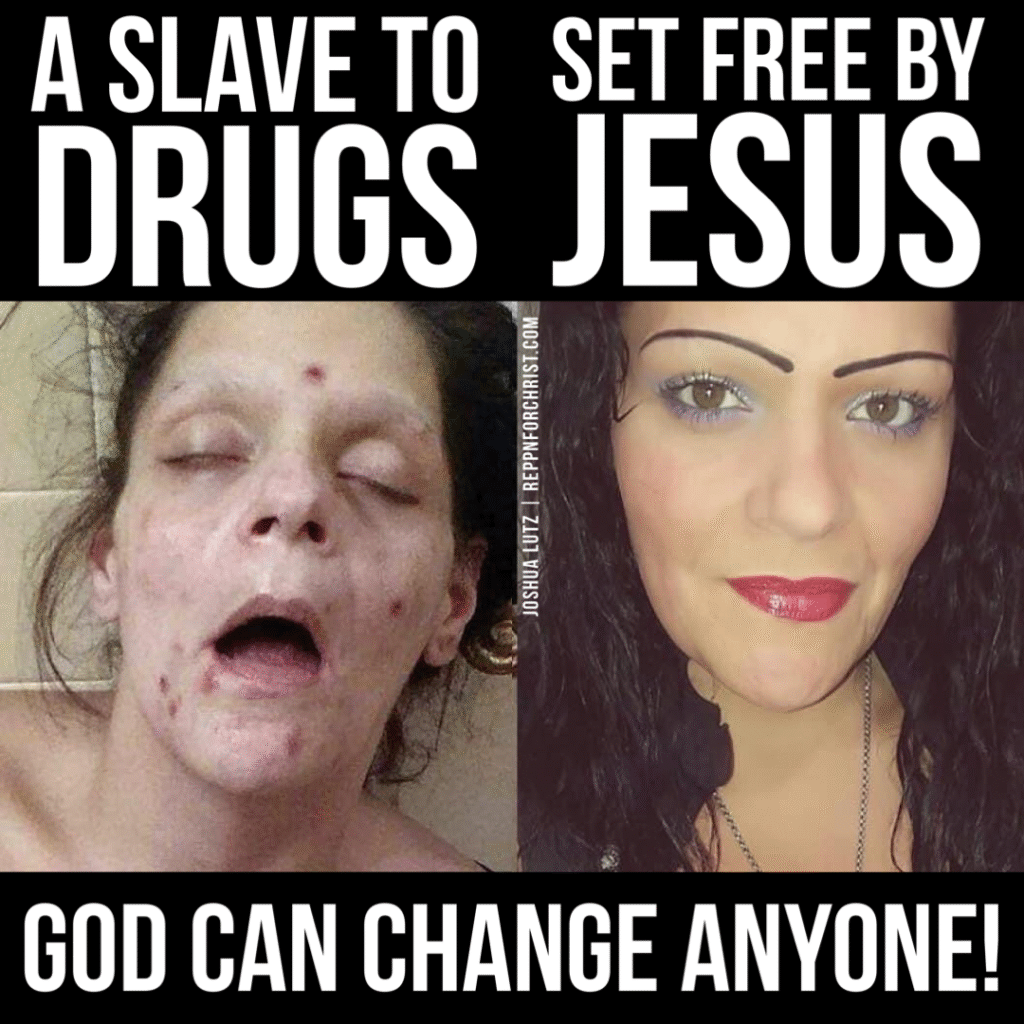
Melissa Lee Matos: From Death’s Shadow to a Mother’s Voice
Melissa Lee Matos hit rock bottom on March 1, 2016. After a drug-fueled blackout that stole three days of her life, she came to with a terrifying truth—she was dying. Her addiction to heroin, Xanax, and Seroquel had taken everything. Her face was covered in sores. Her kids had found her passed out on the bathroom floor more times than she could count. Her marriage was hanging by a thread. And worst of all—she didn’t believe she could ever recover.
But that day, something changed. She picked up the phone, called her mom, and finally said the words that broke the silence: “I’m not okay.” That moment of honesty became the spark that lit her way out.
Melissa had already lost custody of her children. She faced serious charges and could have ended up in prison. But instead, she chose drug court—and that decision saved her life. She entered an 18-month program, got a peer recovery coach, and for the first time, someone asked her what she wanted instead of just telling her who she’d become.
Turns out she wasn’t broken—she was traumatized. And healing was possible.
Today, Melissa is years clean. She’s a mom again. A mentor. A voice for the voiceless. She now helps other women walk out of the same darkness she once lived in.
Her message is simple but powerful: there is recovery. There is freedom. There is hope. And you are worthy of all of it.
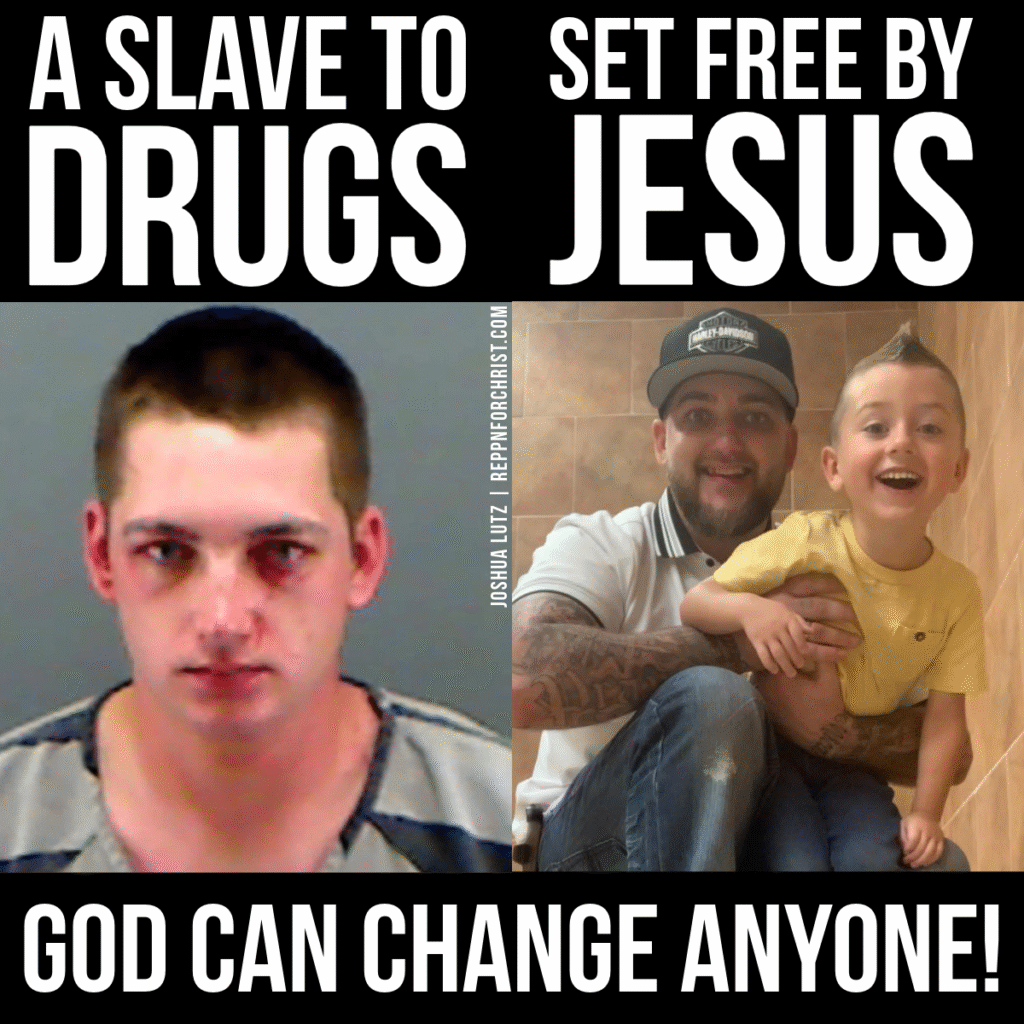
Dillon Loving: No High Like the Most High
Born James Dillon Loving in Richmond, Virginia, Brother Loving’s early life was marked by deep pain. With both parents battling addiction, he was introduced to crack cocaine at just 12. By 13, he was hooked on heroin and other substances. Foster care followed, then a cycle of juvenile detention, jail, and eventually prison.
He lived through loss after loss — his brother, sister, and father all passed away. Homeless. Broken. Running the streets. Searching for something to numb it all.
Then one day, alone in a jail cell, he says the Lord Jesus Christ met him. He began reading the Bible. Something started to change. He got married. Had two kids. Even gained recognition for his Christian hip-hop music.
But without true discipleship, accountability, or a real foundation in the faith, he slipped back. Old habits. Old patterns. Back to prison. And this time, it almost ended him — a suicide attempt nearly took his life.
But God wasn’t done.
In that darkest moment, Dillon says God revealed the pride and pain that had kept him from surrender. He broke. He repented. And God rebuilt him.
Today, he’s clean. He’s walking in his purpose. He’s sharing his story and pointing people to the only One who truly satisfies.
Because there’s no high like the Most High. And no one’s ever too far gone for the love of Jesus.

April Slack: From Shackles to Salvation
For years, April Slack was trapped in a cycle of addiction—chasing the next high, running from the pain, and drowning in shame. Her life was a blur of broken promises, lost time, and the heavy weight of guilt. She knew what it meant to be at rock bottom. Jail cells. Rehab. Relapse. Repeat.
But one day, when she was at her lowest—tired, sick, and ready to give up—God met her in the middle of her mess. It wasn’t through a sermon or a perfect church moment. It was quiet. Personal. Real. April cried out, and Jesus answered.
She didn’t get clean by willpower alone—she was rescued by grace. God didn’t shame her—He restored her. The same hands that once reached for pills now reach for purpose. The same voice that used to cry in silence now speaks truth and hope into others.
April’s story is proof:
No pit is too deep. No past is too far gone. And no addict is beyond God’s reach.
Now, she’s sober. Free. On fire for Jesus.
And she’s using her story to remind others that chains can be broken—because God still saves.
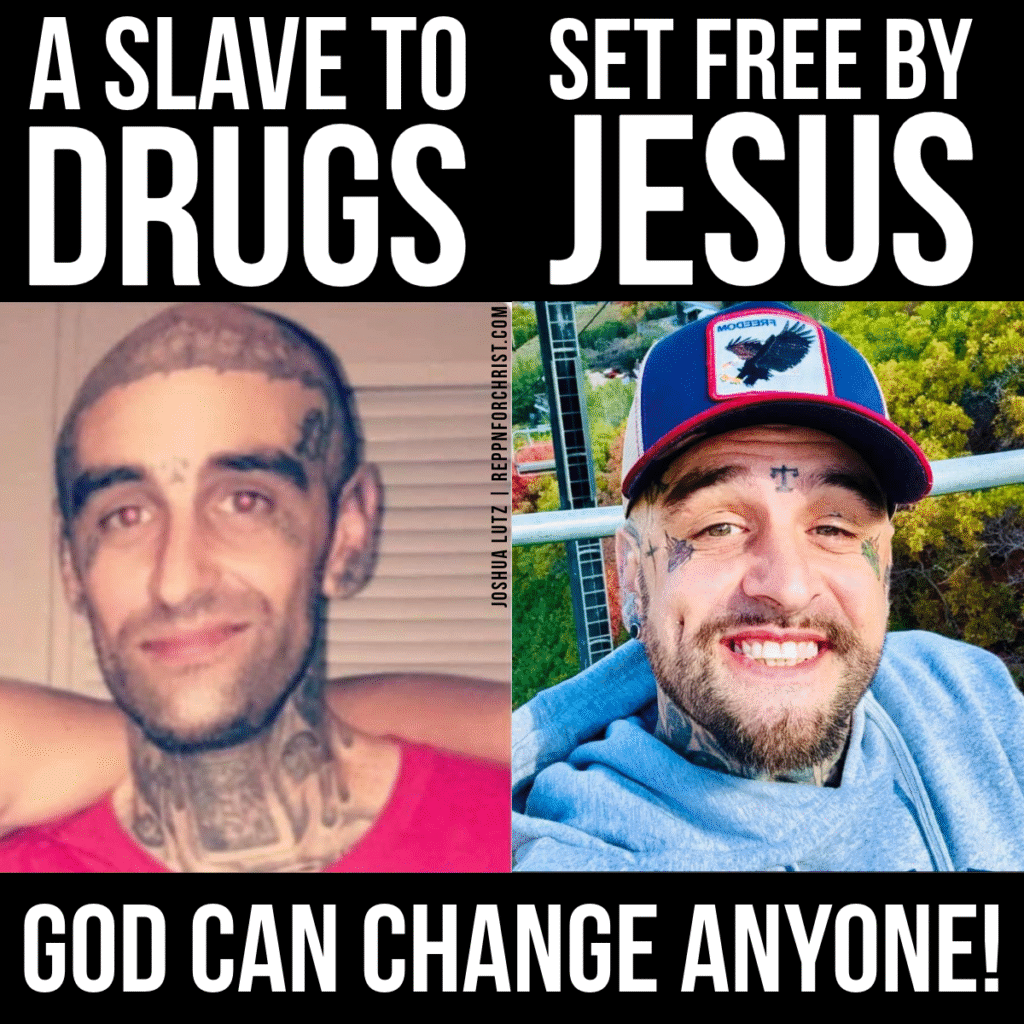
Blake Martin: From Meth to Ministry
Blake wasn’t raised in the streets. He knew about Jesus. Grew up hearing the name. But somewhere along the way, he stopped believing Jesus cared. Or maybe, deep down, he just stopped caring at all.
By his twenties, Blake was fully caught up—addicted to meth, running wild in the streets, in and out of jail, and completely lost. Chasing a high. Numbing a hole inside him that nothing could fill—not drugs, not money, not women. Nothing worked.
Then came the day they threw him into a federal prison cell. He thought that was the end of his story. But that’s where God started writing a new one.
There was a church service happening in the unit. Blake didn’t show up looking for Jesus—he was just trying to kill time. But what he heard wasn’t some soft, feel-good message. The preacher spoke raw truth:
“God doesn’t wait for you to get clean to love you—He loves you right where you’re at.”
That hit hard. Because Blake was dirty. Wrecked. Angry. Addicted. But somehow, in that moment, he felt God calling him anyway.
That night, alone in his cell, Blake dropped to his knees and cried out for real. No show. No fake prayer. Just:
“If You’re real, take my life. I’m done ruining it.”
And God did.
Since that night, Blake’s never looked back. He got clean, but more importantly—he got free. Jesus gave him a fire he couldn’t shut up. Today, he shares his story everywhere—churches, schools, prisons, online—wherever God opens the door.
He’s even linked up with people like Rare of Breed and ASAP Preach, reaching the same kind of people he used to be: the ones the world gave up on.
This isn’t religion. It’s redemption.
And if God can do it for Blake?
He can do it for you too.